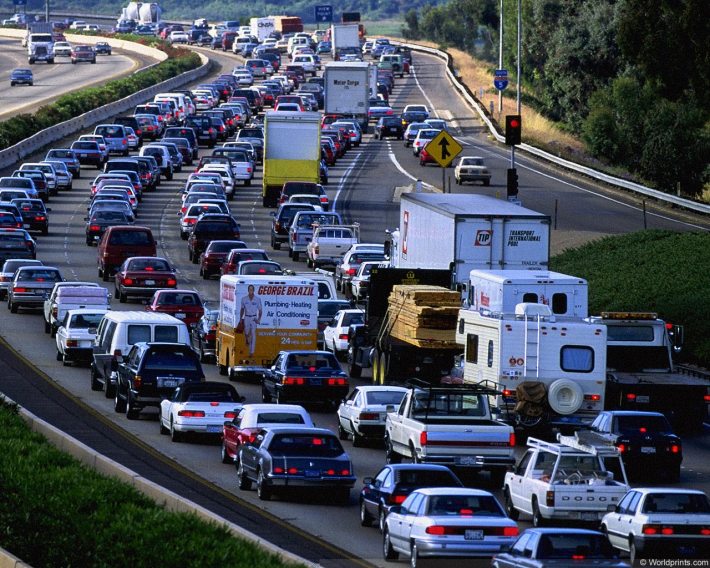About 12 hours after President Obama won re-election, Bloomberg News ran this tantalizing headline: "Obama May Levy Carbon Tax to Cut U.S. Deficit, HSBC Says."
The article suggested that a $20-per-ton tax on carbon emissions, rising gradually over time, could help reduce the deficit by half within a decade.
Within the same story was the antidote to the optimism the headline may have evoked: The founder of the world’s biggest carbon trading exchange said Obama probably won’t seek to install such a program in his second term, but that something might be possible around 2020. As Philip Bump wrote in Grist, it's best to take with a grain of salt what some guy from HSBC -- based in Great Britain -- says is a political possibility in the United States. "His finger might not be that close to the pulse of what the White House is thinking," Bump wrote.
Indeed, the Bloomberg story cited absolutely no reason to think Obama was considering a carbon tax, except that it would be a good idea. And it certainly would be a good idea -- incentivizing efficiency, raising revenues, and just maybe slowing the march toward catastrophic climate change.
Indeed, it might be our only hope. The day after the Bloomberg story ran, Oxford economist Dieter Helm wrote in The Guardian that carbon emissions are rising faster now than before the Kyoto Protocol was ratified (in every country in the world except the United States and Afghanistan) and the only way to make a real dent in it is to tax carbon.
But then the White House extinguished the flame of hope right quick.
“The Administration has not proposed nor is planning to propose a carbon tax,” a White House official told The Hill.
After the failure of cap-and-trade legislation during his first term, Obama seemingly doesn't want to wade back into those waters. Though the President did at least acknowledge the threat of climate change in his acceptance speech, and in the post-Sandy political environment, it's fair to think there might be a little more openness to pricing carbon.
While a carbon tax has the added benefit of harnessing market mechanisms -- which should theoretically appeal to the GOP -- it would be an enormous challenge to get the idea past Republicans who a) still don't believe global warming exists and b) have traded their souls to Grover Norquist. One of the most stalwart supporters of a carbon tax, Pete Stark, just lost his bid for re-election in California. Plus, Obama has signalled that immigration is first on his to-do list, after the so-called "fiscal cliff" gets sorted out.
Speaking of which, one scenario where a carbon tax could conceivably gain traction is through a "grand bargain" in budget negotiations between the White House and Congressional Republicans. Is it likely? No, but as Slate's Matthew Yglesias wrote last week, a carbon tax is a pipe dream worth talking about.






